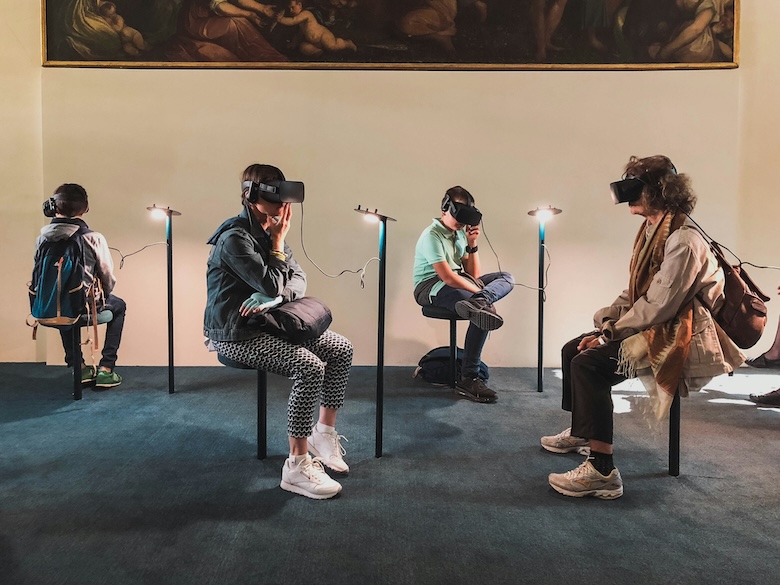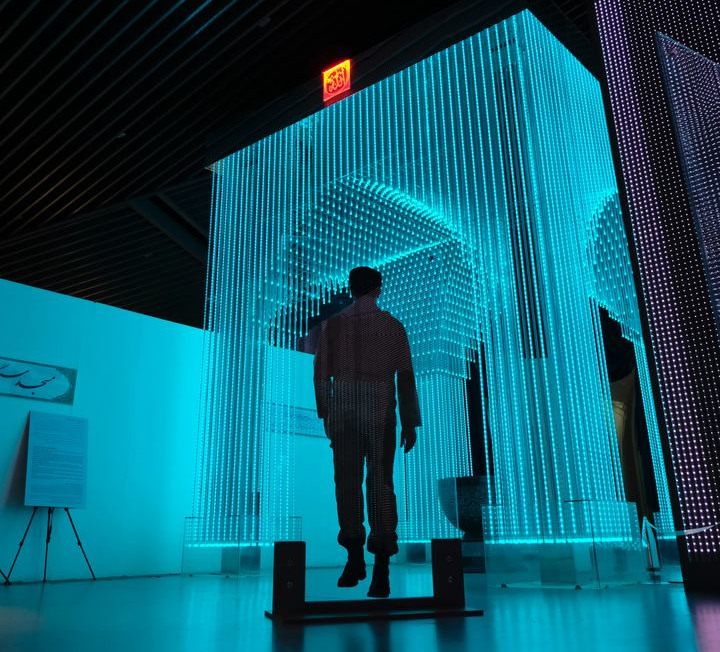
Utilizing computer technology, Virtual Reality (VR) offers a simulated experience that crafts a three-dimensional environment. This allows users to engage with and navigate through a virtual world. The creation of this immersive experience is typically facilitated by VR headsets or multi-projected environments, which mimic the user’s physical presence within the virtual setting. VR finds its use in diverse sectors such as entertainment, education, business, and healthcare. Depending on the degree of user engagement and interaction with the virtual environment, it can be fully immersive, semi-immersive or non-immersive.
The field of VR technology has witnessed significant advancements and is anticipated to have substantial growth potential. It stands apart from Augmented Reality (AR), which superimposes virtual data onto the real world, and Mixed Reality (MR), which combines both real and virtual worlds to generate new environments and visualizations. Efforts are being made towards developing VR headsets with superior resolutions, more robust processors, and possible integration with artificial intelligence. The goal behind these advancements is to enrich the user experience while broadening the scope of VR applications.
Applications of Virtual Reality
Virtual Reality (VR) is a versatile technology that has found its way into numerous sectors, revolutionizing experiences and operations. Here are some key sectors where VR has made significant impacts:
-
Automotive Sector: VR provides a platform for engineers and designers to test out vehicle designs prior to the manufacturing stage.
-
Healthcare Sector: The healthcare industry leverages VR for training healthcare professionals, managing pain levels, and even minimizing the reliance on opioids.
-
Retail Industry: Retailers use VR for virtual walkthroughs, enhancing consumer experiences, and assisting in design visualization.
-
Tourism Industry: VR introduces virtual travel experiences, enabling users to explore destinations and properties without leaving their homes.
-
Real Estate Sector: In real estate, VR is used for immersive property tours, visualizing interior designs, and presenting architectural designs.
-
Entertainment Industry: The entertainment sector uses VR to amplify experiences through 360-degree films, interactive performances, and virtual reality marketing initiatives.
-
Education Sector: Education is being transformed by VR through immersive learning experiences that can be accessed from anywhere.
-
Recruitment Process: Companies such as Lloyds Banking Group incorporate VR into their recruitment process for candidate evaluations and job interviews.
-
Training & Simulation: Various industries like manufacturing, cybersecurity, and athletic training utilize VR in their training scenarios.
-
Team Building & Collaboration: Remote workplaces employ VR to encourage team building via interactive activities and social gatherings.
These examples highlight the adaptability of VR technology across different fields, providing innovative solutions for training purposes, marketing strategies, design visualization techniques among others.

